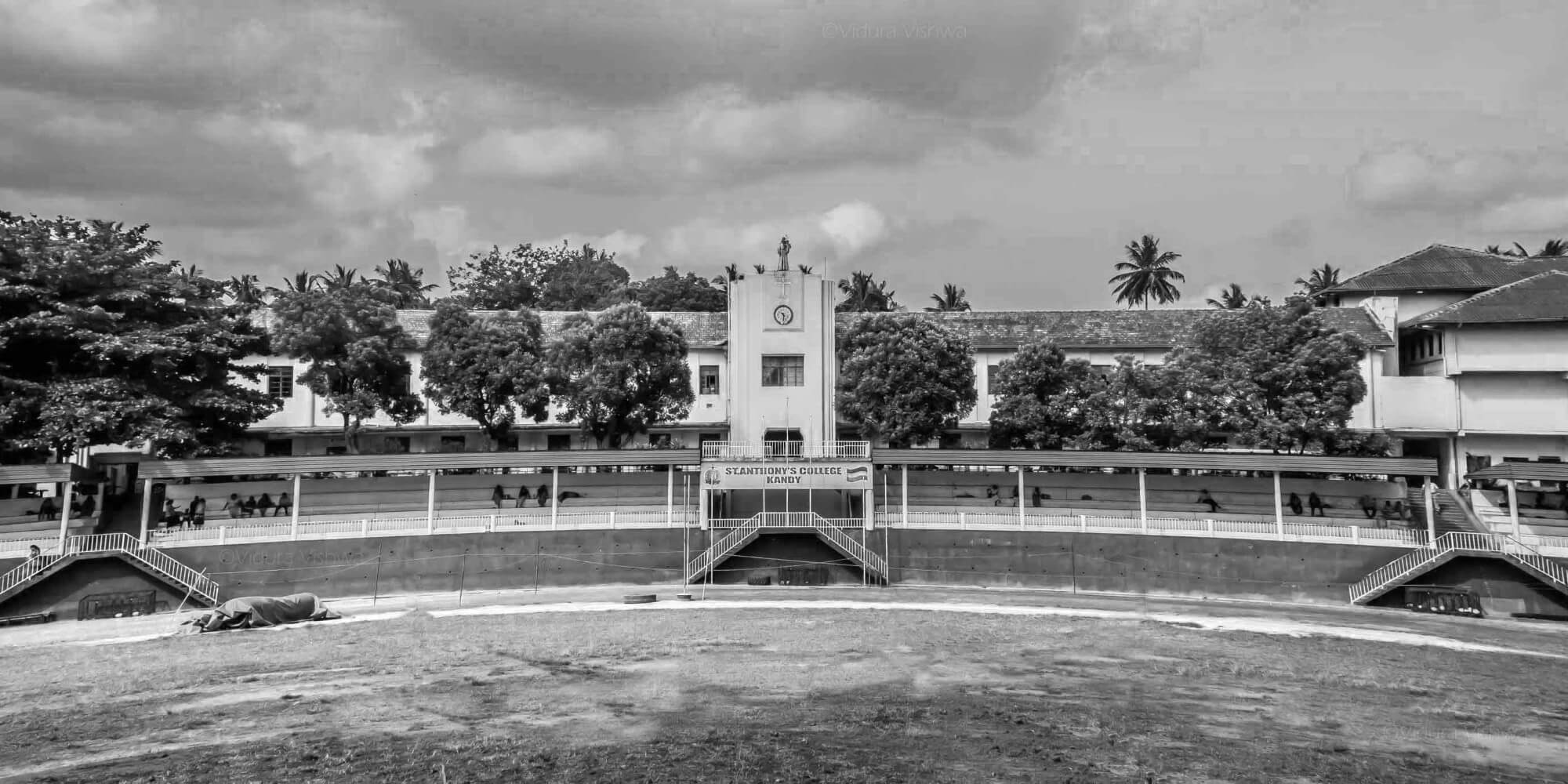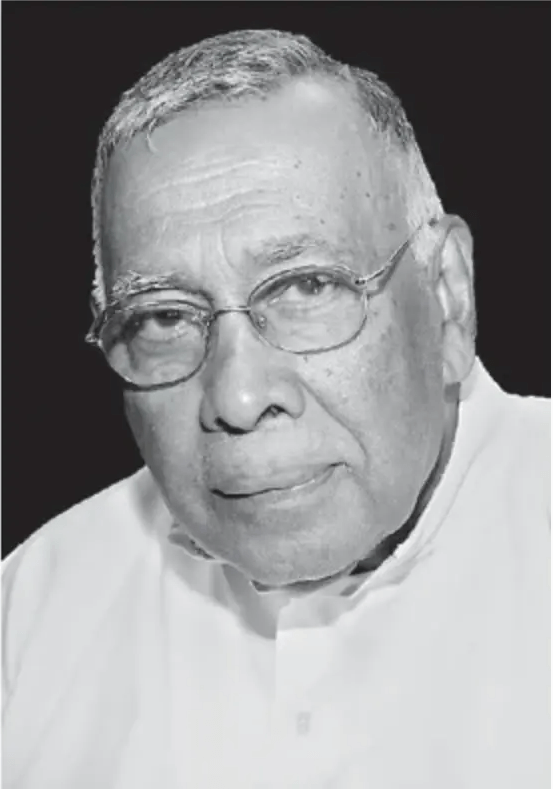Address
SACKOBA HQ,
St. Anthony’s College,
Kandy, Sri Lanka 20000
Email Address
secretary@sackoba.lk
editor@sackoba.lk
Address
SACKOBA HQ,
St. Anthony’s College,
Kandy, Sri Lanka 20000
Email Address
secretary@sackoba.lk
editor@sackoba.lk

Source: Sunday Times (Sri Lanka)·21 Dec 2014
Sri Lanka has many commendable educators who are today true role models, especially for those inexperienced and looking for a vocation to follow. One such illustrious individual is Rev. Fr. Dom Stephen Abraham, OSB. Born on 15th February 1933, during his formative years, he received schooling at St. John’s, Dematagoda. This was until he was 14 years old. Thereafter, for another three years, he was educated at St. Joseph’s College, Maradana. Subsequently, he joined Air Ceylon at the age of 17 for three years. Following this stint, he joined the Bank of Ceylon from 1953-1956 as a clerk.
Equipped with life’s knowledge, understanding, and abilities, in 1956, at the age of 23, he joined the Monte Fano Monastery in Ampitiya, Kandy, to receive priestly instruction. On 17th December 1964, he was ordained as a Priest of the Order of St. Benedict (OSB).
In 1965, he was appointed as the Sub-Warden of the Hostel and as the Prefect of Games at St. Anthony’s College, which was run by the Benedictine Fathers and was one of Kandy’s prestigious private schools.
From 1970 to 1973, Rev. Fr. Dom Stephen Abraham studied at Madras Christian College, a renowned university, and obtained a BA in Economics. He returned to St. Anthony’s in 1974 and served as the Head Master of the Primary Section for a period of two years.

When the government took over the school in 1978, he received an appointment as a Government Teacher at St. Anthony’s. The following year, he was appointed Principal, and during his tenure, which lasted 15 glorious years (1979–1994), the school experienced a golden era.
In celebration of the school’s 125th Anniversary in 1979, Rev. Fr. Dom Stephen Abraham organized a grand exhibition encompassing all activities of the school. To mark this momentous occasion and highlight the school’s achievements over the years, he invited the country’s first Executive President, His Excellency J. R. Jayewardene, and Education Minister Nissanka Wijeratna as honoured guests.
In the following year, 1980, Prime Minister R. Premadasa graced the Prize Giving as Chief Guest. Impressed with the School’s progress and in gratitude to Father Stephen’s services, the Prime Minister donated a class room block of eight classes which contributed to the school’s infrastructure and administration. The block was named the ‘Premadasa Block’.
During his tenure, Father Stephen planned the beautification of the school where several infrastructure projects when completed contributing to wards an impressive learn ing environment. Among these were a gymnasium and pavilion, a three-storey building, a scoreboard, a basketball court and even the rebuilding of the terrace providing the school with every imaginable convenience.
On the premise that a good leader is not a dictator, he ensured a participative administration and by example created a truly admirable and pleasant surround ing where education flourished.
His legacy is today considered by many as a ‘provider of comforts’ . An individual who objectively attended to all required matters pertaining to the betterment of the school including developing public relations with all parties involved in the School’s development.
Among his many achievements is where he oversaw the conducting of the School’s Prize Giving in a meaningful manner, where good work was recognized and rewarded. As a result of these structural changes, he received accolades from the then Department of Education who commended the openness and rewarding students.
The Rev. Fr also inaugurated a Computer Lab and equipped it with six black and white monitors and students were trained in the use of the computers in turn enhancing their IT skills. Students were also instructed in electronics and modern technology. Through these classes and training, news and communication about the school was easily circulated.
Father Stephen realized that the lack of lighting posed a severe drawback to children in class rooms where light ing was insufficient. With this under stand ing he installed better lighting and thereby eliminated a long felt need, creating better conditions for students to engage in studies.
In an effort to develop the standard of the students sit ting for their Ordinary Levels Examination, with the hope of generating better results, he implemented several noteworthy programmes to encourage them to study. As a result of these efforts St. Anthony’s College attained over all in place among the Central Province, a proud achieve ment for the school.
In efforts to uplift the standard of sports in the school, he implemented projects including a compulsory physical programme for students. Through this the students developed both physically and mentally ensuring a higher standard of sports, especially in cricket, rugby, table tennis, basketball and badminton. This contributed to creating a group of competitive sportsmen of international repute; Bernard Per era, Marlon Vonhaght, Priyantha Ekanayaka, Udaya Weerakoon, Piyal Wijetunga, Ruwan Kalpage, Christopher Arnolda, Jeewa, Sajith Fernando, and of course Muttiah Muralidaran.
In advising the teacher in charge of scouting, Rev. Fr. helped the School achieve a land mark when 50 Scouts were nominated for the Presidential Award. Through their efforts a destitute individual in the Pilimathalawa region was gifted a house. He assisted in organizing the 1991 Scouting Jamboree, and promoted the move ment. This created an in creased interest in scout ing as an activity especially among primary students.
Helping the teacher in charge of agriculture, Father Stephen commenced a programme to beautify the school surroundings through growing indigenous plants, and other agricultural and flower plants helping students understand cultivation and at the same time helping to create a lasting impression on parents visiting the school.
He also oversaw the renovation of the School’s prefects building, encouraged the students through educational trips, and other pro grams, thus creating a more meaningful schooling experience and helping to instill dedication among them.
Noteworthy is that during his tenure serious disciplinary issues were negligible among the students. This was brought to the attention of the Education Department appraisers who heaped praise on the school and its administrators for the exemplary discipline demonstrated by the students.
During the 1989 insurgency, through Father Stephen’s bold and fearless decisions, the School did not face any problems and while other schools were forced to shut down, St. Antony’s continued its schooling activities uninterrupted.
In collaboration with the School Develop ment Society and in consultation with the Department of Education, Rev. Fr. supervised a series of infrastructure programs contributing to St. Anthony’s reaching its zenith among the prestigious schools in the Central Province.
As an exemplary individual, Fr. Stephen never accumulated personal wealth. During a sojourn abroad, the donations he received were used to build 25 houses for 25 individuals employed in the school, this was essentially for the support staff. This was in commemoration of his 25th anniversary of priesthood. The village was named St. Anthony’s Village and held in concurrence with the Gam Udava housing scheme of President Premadasa.
Rev. Fr. Stephen Abraham’s accomplishments have all contributed towards the betterment of all individuals, irrespective of class or creed. His legacy will endure for many eons. Praise God.